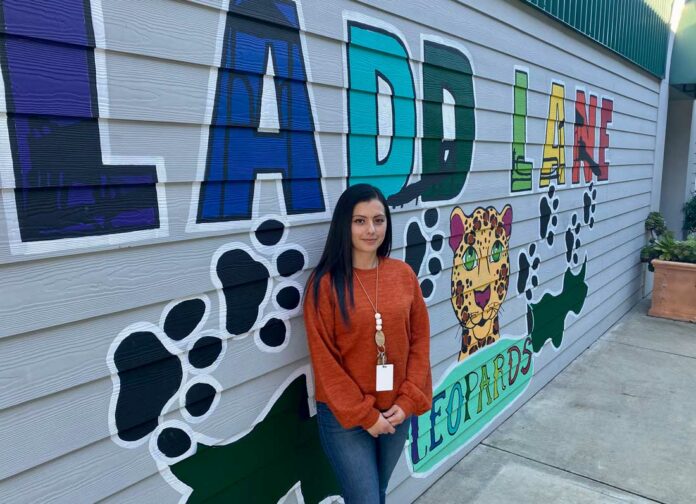
As the social emotional coordinator for the Hollister School District, Eliana Delgadillo oversees efforts to address students’ increasingly prevalent mental health issues.
She and a team of staff members throughout the district are devoted to addressing students’ social-emotional needs. Delgadillo oversees three other district mental health therapists and a school social worker provided by the San Benito County Office of Education, while also coordinating with outside agencies providing additional help.
“My job is to oversee the mental health therapists and support the school social workers we have on our staff, and to assist the schools that currently do not have a full-time social-emotional team member with the services,” Delgadillo said.
That involves linking students to community-based organizations or acting as a liaison with the county Behavioral Health Department to ensure students have access to mental health services.
Delgadillo displays palpable enthusiasm in the role after serving for 15 years in the community, including 11 in the nonprofit sector providing school-based counseling services. Delgadillo, who grew up in the Hollister area and attended local schools, balances her time between two roles: one as the district’s social emotional coordinator and the other as a school social worker at Ladd Lane Elementary School.
It’s a challenge she embraces after the district faced budget challenges last year with reduced resources to address mental health issues.
“I supervise three other mental health therapists,” she said. “We have bi-weekly staff meetings where we talk about the issues we’re coming across at our sites in regard to case loads.”
She also works with Community Solutions, which provides two case managers devoted to school matters, and with the San Benito County Behavioral Health Department’s PATHS program. PATHS is a team of qualified case managers who support children and families to improve school performance and get along better with others, according to the Behavioral Health Department’s description.
“I work closely with them to see if I can link them with the sites so we can have additional support,” Delgadillo said.
She noted how Community Solutions has two case managers who do check-ins with students on a drop-in basis, and she can refer students to a therapist provided by the nonprofit organization as well. With the PATHS program, there is a case manager visiting all school sites weekly to check on students and determine if long-term care is needed.
With regard to the full-time therapists, she noted how there is a mental health therapist (Erica Cortez) at Calaveras School/Accelerated Achievement Academy, a mental health therapist (Cyrena Salinas) at Rancho Santana School, a mental health therapist (Lucia Aleman) at the Hollister Dual Language Academy and Delgadillo at Ladd Lane.
“We’re definitely really busy,” she said. “At our sites, we’ve always been busy. But for the schools that don’t have a full-time S.E. team member, they’re extremely busy.”
The school social worker provided by the San Benito County Office of Education is stationed at Sunnyslope School. Community Solutions and Behavioral Health help to fill the gaps at sites without full-time mental health professionals.
“Community Solutions does more than case management and therapy,” she said. “They do parent workshops. They run support groups. So they’re providing a lot more service than case management.”
Delgadillo meets monthly with Community Solutions and then keeps in communication with Behavioral Health to make sure staff members are at sites with coverage at least once or twice per week.
The issues facing students can vary, she said.
“So last year, we really saw the re-adjustment of coming back into school from Covid,” she said. “Now we’re still seeing symptoms of anxiety, symptoms of depression. I can’t pinpoint where that’s coming from. But definitely for higher grades, we’re seeing symptoms of anxiety more.”
She said the younger grades are always still struggling with socialization, such as how to respond when losing at a game, and there are ongoing issues with parent divorce and separation, she said.
“Now we’re providing these students a safe place to come and express how they’re feeling,” she said.
When a student moves into formal services, it includes 10 sessions with meetings on a weekly basis for no more than 45 minutes. It’s very structured, she said, with interventions moving toward a goal.
“That support plan is really the map to our treatment,” she said. “If the student successfully reaches their goal, it’s a success. If they didn’t quite reach it because of underlying traumatic issues, we link them to the appropriate provider.”
With her experience for many years before she joined the Hollister School District, Delgadillo brought a familiarity with local campuses. She is also familiar because of her roots in the community.
“I attended most of these schools here,” she said. “I have children in the school district. I’m in it. I’m invested.”









